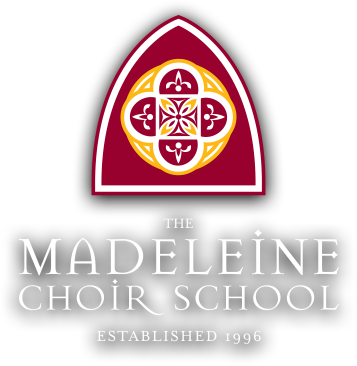Social and Emotional Development of Learners
The Madeleine Choir School strives to create a learning environment where every person feels a sense of belonging and is respected. A crucial piece of meeting the emotional and mental health needs of learners is to have an emphasis for social learning and development.
“Home Base” is a 35-minute period, one day per week (Wednesdays) where classes will be engaging in social and emotional learning opportunities using the program Second Step.
Our management plan reviews our approaches to build positive supports and clearly defined consequences into our disciplinary approach. Behavior intervention plans will be implemented to support students to meet our expectations. Consequences are in place to build a safe and respectful community for all.
Bullying affects children in every school and negatively affects bullied students, students who bully others, and students who witness bullying. The Second Step curriculum embeds explicit skills and tools for creating a caring environment that has tools and resources targeting this school issue. Through this explicit teaching we hope to grow to be a more empathetic and preventative community. There are consequences outlined clearly in order to consistently approach issues involving bullying (see Bullying Discipline Hierarchy).
It is important that our community has a common understanding of the definitions of bullying and what to do when your child is involved.
(Second Step Curriculum Definitions)
Bullying is defined by three primary characteristics:
- Is usually repeated over time
- Occurs in a relationship where there is a power imbalance
- Intends to cause harm or distress and/or has a serious harmful or distressing effect on the target
It is important to distinguish bullying from both rough-and-tumble play and conflict that happened between peers of equal status. These are a normal part of development, but bullying is not. Rough-and-tumble play is identifiable behavior because all children involved participate voluntarily, whereas bullying is unwanted. Conflict and arguments, common in childhood, can be resolved by using problem-solving strategies or through meditation. However, due to the power differential in a bullying situation, adults must respond differently to bullying rather than to other forms of aggression or conflict.
More information will be sent home throughout the school year to support our understanding of how to support students developing these skills and are available at SecondStep.org.
Bullying Consequence Hierarchy
Consequences will vary depending upon the nature of the infraction, the age and grade level of the students involved, the degree to which there have been previous incidents, and other relevant factors deemed pertinent by the building principal.
|
First Offense |
Loss of Privileges (recess, field trips, school activities) Parents are notified |
|
Second Offense |
Lunch Detention Meeting with Parents; Behavior Support Plan in Place |
|
Additional Offenses |
In School Suspension, Out of School Suspension, Expulsion Police Notification if Necessary |
